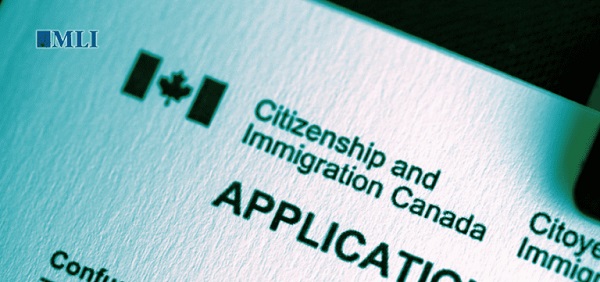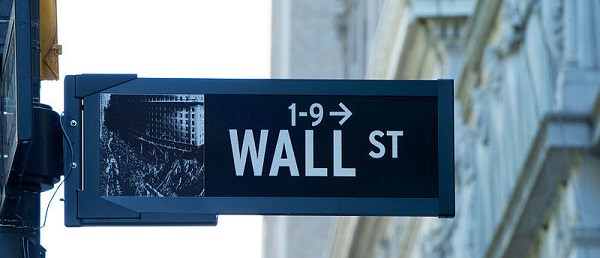Uncategorized
UK’s May asks the EU to delay Brexit until June 30

LONDON — British Prime Minister Theresa May on Friday sought to delay Brexit until June 30 to avoid a chaotic withdrawal from the European Union in one week, but a key leader of the bloc suggested an even longer pause in the difficult divorce proceedings.
The question over timing is vital because Britain is set to leave the EU without a withdrawal deal in place on April 12 unless an agreement is reached at a Brussels summit set to take place two days earlier.
In a letter to European Council President Donald Tusk, May asked for an extension until June 30 and agreed to make contingency plans to take part in European Parliament elections on May 23-26 if necessary.
Tusk proposed a longer time frame. He urged the 27 remaining EU nations to offer the U.K. a flexible extension of up to a year to make sure the nation doesn’t leave the bloc in a chaotic way that could undermine commerce.
Two EU officials said Tusk wants a one-year period, which has been dubbed a “flextension,” and hopes to get it approved at the EU summit on April 10. The officials spoke on condition of anonymity because they weren’t authorized to disclose information before it was made public.
Such a move would mean that the U.K. would need to take part in the elections to the European Parliament, something the U.K. prime minister has long argued would not be in either side’s interest.
The elections pose a substantial stumbling block because Britain would be expected to take part, if it is still an EU member, so its people have representation in the European Parliament. Officials worry that the legitimacy of European institutions could be jeopardized if the population of a member state is not involved in the process.
Any extension to the deadline will need unanimous approval from the rest of the EU. French President Emmanuel Macron has thus far seemed cautious about giving Britain more time, saying the bloc cannot be held hostage by Britain’s political deadlock over Brexit.
There are also concerns in Europe that some British politicians who want to provoke a “no-deal” Brexit might try to make trouble from inside the bloc, a course that outspoken Brexit advocate Jacob Rees-Mogg suggested Friday.
He tweeted that “if a long extension leaves us stuck in the EU, we should be as difficult as possible.”
The Conservative Party lawmaker suggested using Britain’s positon to veto any EU budget increases, block the establishment of an EU army, and make it impossible for Macron to push further EU integration.
Brexit backer Nigel Farage, who has long ridiculed Europe’s institutions, also said he would campaign in European Parliament elections.
If any EU nation refuses to back an extension, Britain will be expected to leave as scheduled on April 12.
There are concerns that such an abrupt exit without a deal could lead to economic slowdown and a breakdown in food and medical supplies as border checks and tariffs are added overnight. Massive traffic jams could also be expected on highways leading to major ferry ports.
An earlier British request for a delay until June 30 was rejected, and officials are disappointed May has again sought an extension until that date, said Larissa Brunner, an analyst with European Policy Center.
“The EU has already said ‘no’ once, so I think Theresa May knows that EU is probably not going to grant her that extension,” she said.
She said May could be able to blame the EU for rejecting an extension if Britain leaves the bloc next week without an agreement.
The complex
Britain’s upper House of Lords is set to resume debate on the measure Monday. It was endorsed earlier by the lower House of Commons by just one vote.
Despite the apparent support in Parliament for a new law to prevent a no-deal exit, the decision is in the hands of the EU, not Britain. It is the first country to try to leave the bloc, and the formal “Article 50” exit procedure has never been tested before.
The Europeans would prefer that Britain not take part in the European Parliament elections if it is going to leave. April 12 is the last day for Britain to signal whether it will field candidates.
May said in her letter that Britain is reluctantly ready to begin preparations for the European elections if no Brexit deal is reached in the interim. She said she is making the preparations even though she believes it is not in the interest of either Britain or the EU for her country to participate because it is leaving the bloc.
May said she “accepts” the EU position that if Britain has not left by May 23, it will have a legal obligation to take part in the voting.
She said she hopes to reach a compromise agreement that could take Britain out of the EU before that.
May’s withdrawal plan, reached with the EU over more than two years of negotiations, has been rejected by the U.K. Parliament three times.
She is now seeking a compromise in a series of talks with Labour Party leader Jeremy Corbyn and his deputies, with hopes of winning opposition support for a new divorce deal.
If that doesn’t work, May plans a series of votes in Parliament to see if a majority-backed plan can emerge.
Ideas being discussed include keeping Britain in a customs union with the EU after it leaves the bloc, as well as the possibility of a second referendum. There is fierce opposition from Brexit backers in the Conservative Party to these options.
___
Casert reported from Brussels. Associated Press writer Lorne Cook in Brussels contributed.
Gregory Katz And Raf Casert, The Associated Press
Uncategorized
Poilievre on 2025 Election Interference – Carney sill hasn’t fired Liberal MP in Chinese election interference scandal

From Conservative Party Communications
“Yes. He must be disqualified. I find it incredible that Mark Carney would allow someone to run for his party that called for a Canadian citizen to be handed over to a foreign government on a bounty, a foreign government that would almost certainly execute that Canadian citizen.
“Think about that for a second. We have a Liberal MP saying that a Canadian citizen should be handed over to a foreign dictatorship to get a bounty so that that citizen could be murdered. And Mark Carney says he should stay on as a candidate. What does that say about whether Mark Carney would protect Canadians?
“Mark Carney is deeply conflicted. Just in November, he went to Beijing and secured a quarter-billion-dollar loan for his company from a state-owned Chinese bank. He’s deeply compromised, and he will never stand up for Canada against any foreign regime. It is another reason why Mr. Carney must show us all his assets, all the money he owes, all the money that his companies owe to foreign hostile regimes. And this story might not be entirely the story of the bounty, and a Liberal MP calling for a Canadian to be handed over for execution to a foreign government might not be something that the everyday Canadian can relate to because it’s so outrageous. But I ask you this, if Mark Carney would allow his Liberal MP to make a comment like this, when would he ever protect Canada or Canadians against foreign hostility?
“He has never put Canada first, and that’s why we cannot have a fourth Liberal term. After the Lost Liberal Decade, our country is a playground for foreign interference. Our economy is weaker than ever before. Our people more divided. We need a change to put Canada first with a new government that will stand up for the security and economy of our citizens and take back control of our destiny. Let’s bring it home.”
Uncategorized
Canada Needs A Real Plan To Compete Globally

From the Frontier Centre for Public Policy
Ottawa’s ideological policies have left Canada vulnerable. Strategic action is needed now
As Canada navigates an increasingly complex geopolitical landscape, the next federal government must move beyond reflexive anti—Americanism regardless of its political leanings. Instead, Canada should prioritize national interests while avoiding unnecessary conflict and subservience.
The notion that Canada can stand alone is as misguided as the idea that it is only an economic appendage of the United States. Both perspectives have influenced policy in Ottawa at different times, leading to mistakes.
Rather than engaging in futile name-calling or trade disputes, Canada must take strategic steps to reinforce its autonomy. This approach requires a pragmatic view rooted in Realpolitik—recognizing global realities, mitigating risks, governing for the whole country, and seizing opportunities while abandoning failed ideologies.
However, if Washington continues to pursue protectionist measures, Canada must find effective ways to counteract the weakened position Ottawa has placed the country in over the past decade.
One key strategy is diversifying trade relationships, notably by expanding economic ties with emerging markets such as India and Southeast Asia. This will require repairing Canada’s strained relationship with India and regaining political respect in China.
Unlike past Liberal trade missions, which often prioritized ideological talking points over substance, Canada must negotiate deals that protect domestic industries rather than turning summits into platforms for moral posturing.
A more effective approach would be strengthening partnerships with countries that value Canadian resources instead of vilifying them under misguided environmental policies. Expand LNG exports to Europe and Asia and leverage Canada’s critical minerals sector to establish reciprocal supply chains with non-Western economies, reducing economic reliance on the U.S.
Decades of complacency have left Canada vulnerable to American influence over its resource sector. Foreign-funded environmental groups have weakened domestic energy production, handing U.S. industries a strategic advantage. Ottawa must counter this by ensuring Canadian energy is developed at home rather than allowing suppressed domestic production to benefit foreign competitors.
Likewise, a robust industrial policy—prioritizing mining, manufacturing, and agricultural resilience—could reduce dependence on U.S. and Chinese imports. This does not mean adopting European-style subsidies but rather eliminating excessive regulations that make Canadian businesses uncompetitive, including costly domestic carbon tariffs.
Another key vulnerability is Canada’s growing military dependence on the U.S. through NORAD and NATO. While alliances are essential, decades of underfunding and neglect have turned the Canadian Armed Forces into little more than a symbolic force. Canada must learn self-reliance and commit to serious investment in defence.
Increasing defence spending—not to meet NATO targets but to build deterrence—is essential. Ottawa must reform its outdated procurement processes and develop a domestic defence manufacturing base, reducing reliance on foreign arms deals.
Canada’s vast Arctic is also at risk. Without continued investment in northern sovereignty, Ottawa may find itself locked out of its own backyard by more assertive global powers.
For too long, Canada has relied on an economic model that prioritizes federal redistribution over wealth creation and productivity. A competitive tax regime—one that attracts investment instead of punishing success—is essential.
A capital gains tax hike might satisfy activists in Toronto, but it does little to attract investments and encourage economic growth. Likewise, Ottawa must abandon ideological green policies that threaten agri-food production, whether by overregulating farmers or ranchers. At the same time, it must address inefficiencies in supply management once and for all. Canada must be able to feed a growing world without unnecessary bureaucratic obstacles.
Ottawa must also create an environment where businesses can innovate and grow without excessive regulatory burdens. This includes eliminating interprovincial trade barriers that stifle commerce.
Similarly, Canada’s tech sector, long hindered by predatory regulations, should be freed from excessive government interference. Instead of suffocating innovation with compliance mandates, Ottawa should focus on deregulation while implementing stronger security measures for foreign tech firms operating in Canada.
Perhaps Ottawa’s greatest mistake is its knee-jerk reactions to American policies, made without a coherent long-term strategy. Performative trade disputes with Washington and symbolic grandstanding in multilateral organizations do little to advance Canada’s interests.
Instead of reacting emotionally, Canada must take proactive steps to secure its economic, resource, and defence future. That is the role of a responsible government.
History’s best strategists understood that one should never fight an opponent’s war but instead dictate the terms of engagement. Canada’s future does not depend on reacting to Washington’s policies—these are calculated strategies, not whims. Instead, Canada’s success will be determined by its ability to act in the interests of citizens in all regions of the country, and seeing the world as it is rather than how ideological narratives wish it to be.
Marco Navarro-Génie is the vice president of research at the Frontier Centre for Public Policy. With Barry Cooper, he is co-author of Canada’s COVID: The Story of a Pandemic Moral Panic (2023).
-

 COVID-192 days ago
COVID-192 days agoMaxime Bernier slams Freedom Convoy leaders’ guilty verdict, calls Canada’s justice system ‘corrupt’
-

 Censorship Industrial Complex2 days ago
Censorship Industrial Complex2 days agoChina announces “improvements” to social credit system
-

 Carbon Tax2 days ago
Carbon Tax2 days agoThe book the carbon taxers don’t want you to read
-

 International2 days ago
International2 days agoGermany launches first permanent foreign troop deployment since WW2
-

 Immigration2 days ago
Immigration2 days agoImmigrant background checks are unrelated to national security?
-

 2025 Federal Election2 days ago
2025 Federal Election2 days agoInside the Convoy Verdict with Trish Wood
-

 Automotive1 day ago
Automotive1 day agoTesla Vandals Keep Running Into The Same Problem … Cameras
-

 Banks22 hours ago
Banks22 hours agoWall Street Clings To Green Coercion As Trump Unleashes American Energy








